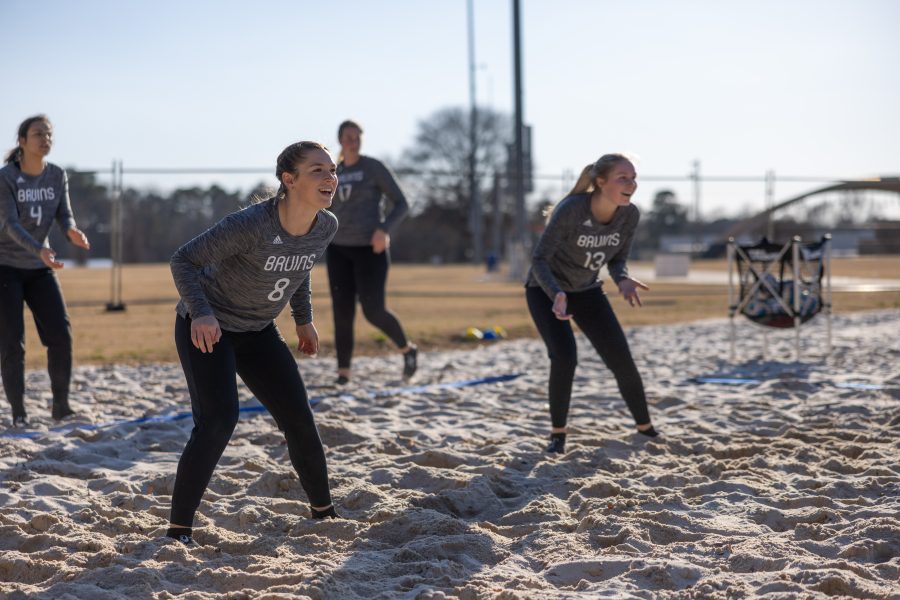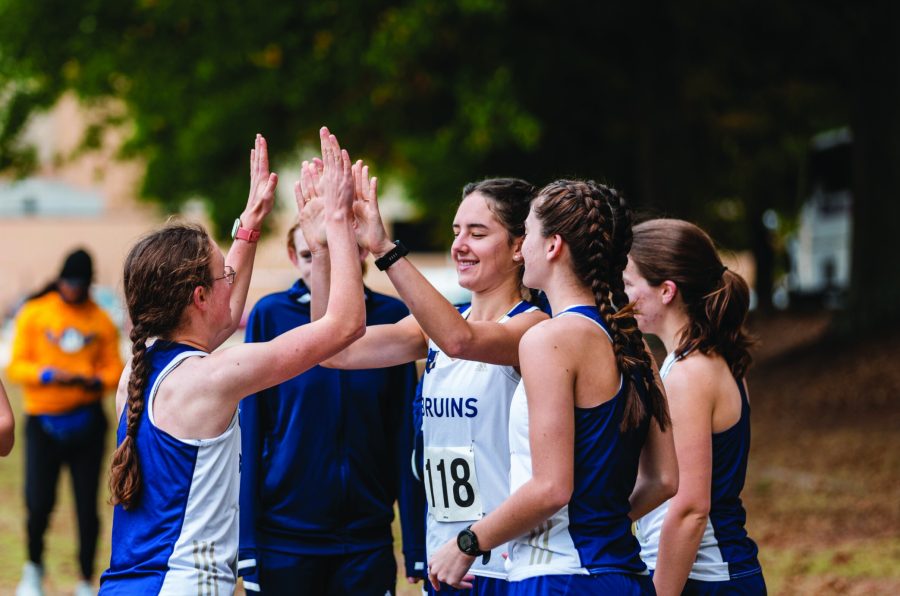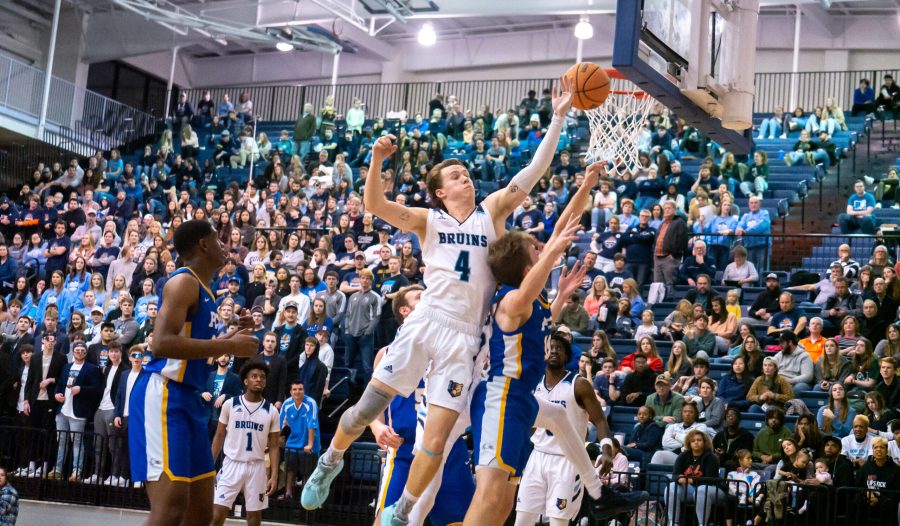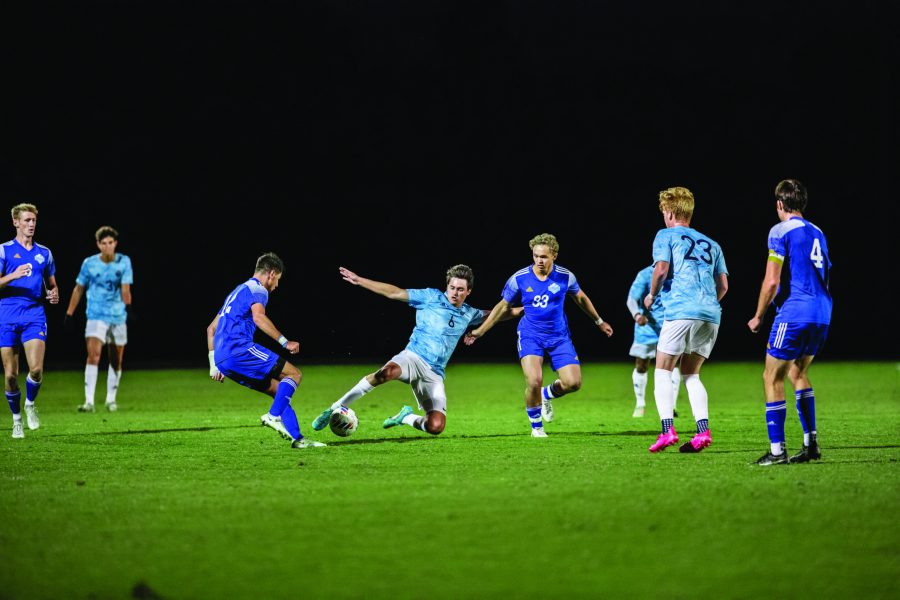Bob Jones University celebrates another special birthday this year: the 10th anniversary of the intercollegiate athletics program.
BJU’s intercollegiate sports, conceived in 2011 by then-president Stephen Jones and established in 2012, rounds the corner of 2021 with a decade of effort and growth under its belt.
Dr. Neal Ring, the director of athletics since the program’s beginning, recalled first hearing there would be intercollegiate athletics at BJU while working elsewhere.
“I told my wife in December 2011 that someone was going to get a great opportunity, but I wasn’t interested after a recent move,” he said. “I’m thankful [God’s] plans were not my plans! These past ten years have been remarkable.”
Though the University and program have grown over 10 years, Ring said the progress goes beyond athletics. He attributed its success to God.
“God has allowed us to serve over 800 student athletes, complete thousands of hours of community service, witness over 250 spiritual decisions directly related to camps and mission trips, win 15 National Christian Collegiate Athletic Association (NCCAA) National Championships and receive five consecutive Presidential Awards for Excellence from the NCCAA,” he said.

The birth of the intercollegiate program comes from the vision of Dr. Stephen Jones. Jones brought in staff such as Ring to create a program that would help bring students together and offer the athletes opportunities for ministry.
One of the first Bruins staff members was Jonny Gamet, the current Assistant Athletic Director for Communications and Marketing.
“One of the main purposes Dr. Stephen Jones had when he started the athletics program for intercollegiate sports was that it would be a unifier for the institution, that we’d all be cheering for the same team, same colors for a game,” he said.
Gamet said that while students came for a BJU education, the student body did not cheer for one team but many different society teams. “Now we have an intercollegiate program where we’re one team, … and it’s the team that represents us as a school rather than all the different societies,” he said.
Gamet said the beginning of the program was an exciting time. “Aug. 31 came with our first soccer games, and we had over 7,000 people in attendance at Alumni Stadium, and we had to bring in extra bleachers. … From the overwhelming response that we got from our students, our faculty and staff, we knew that it was the birth of something special.”
Coach Mike LeViere, women’s basketball coach and director of the intramural program, has been on the Bruins athletic staff since the beginning. Coach LeViere took the lead in restructuring the intramural program.
LeViere said he and his staff’s goal was to make intramurals accessible to more students.
“Things had to change because we brought the Bruins in,” he said. “The intramural program here wasn’t a true intramural program. … Each society could have one team and exclusively one team in each sport, and so there have been changes philosophically, where now the exclusive, skilled athletes on campus are intercollegiate players.”
But LeViere expressed that intramurals are no less significant than the Bruins. “They’ve probably grown in importance on campus,” he said. “We’ve opened that participation rate for each student and their societies; now they can have more than one team.”
Jonny Gamet reinforced that sentiment. “If you wanted to play before the Bruins, there were some limitations on the number of participants in intramurals,” he said. “Kids would try out for society teams and not make the cut.”
Coach LeViere believes the changes made to the intramural system over the years have been positive. He said people participating in intramurals at the time thought intramurals would be ruined by the new emphasis on intercollegiate sports.
However, he said there are more people playing intramurals today compared to 10 or 12 years ago.
As for the Bruins, LeViere thinks the goal to build a positive identity for the Bruins is evident from continued student support.
“We’ve been able to look back, see some progress in what we’ve been able to accomplish in that time.”
Gamet is confident about the upcoming year. “It should be a memorable 10th year for Bruins athletics,” Gamet said. “We’re excited particularly for Homecoming and the events we have this year to celebrate that anniversary.”
“We might bring back some of those original players who had such an impact building the foundation of Bruins athletics.”

Victoria Glaze, a junior interior architecture major, said she and the volleyball team are excited to start this momentous season.
“I’m thankful we’ve been able to be a part of the building process of the program and the athletics as a whole to see how it’s grown in the past few years,” Glaze said. “I take a lot of pride in how we’ve done and kept our culture focused on glorifying God through everything.”
Hannah Prince, a junior early childhood education major, said she is also proud to be on the volleyball team for the anniversary. Prince said they hope the student body will be more involved and support them during the year.
Prince also voiced her excitement for the start of the upcoming season, giving credit to the underclassmen for stepping into their roles. “We’ve been able to pull it together in practice, and our core returners have been helpful to our freshmen girls,” she said.
Jordan Crews, a senior accounting major, said the team culture affects him in ways beyond the soccer field.
“One way is work ethic,” Crews said. “I think as you get older and mature, you realize just how important hard work is. That applies to the soccer field and school.”
Crews also said the Bruins program has helped him understand the importance of building relationships. “Now that we’re seniors, we know each other more and can impact those guys that are under us now.”
Crews said he hopes this relational mentorship continues through the program after graduation.
“I love we have reached our 10th year, but I can’t wait to see what God will do next,” Ring said.
























































